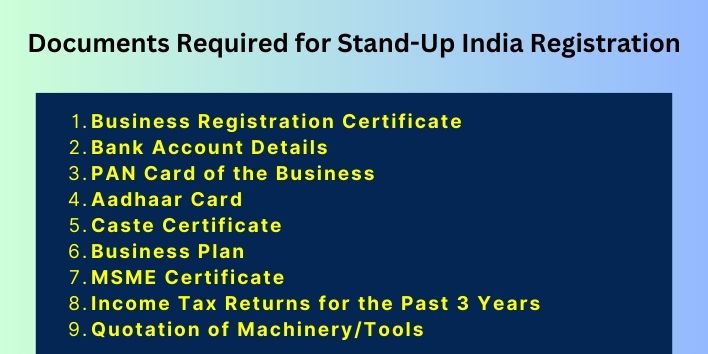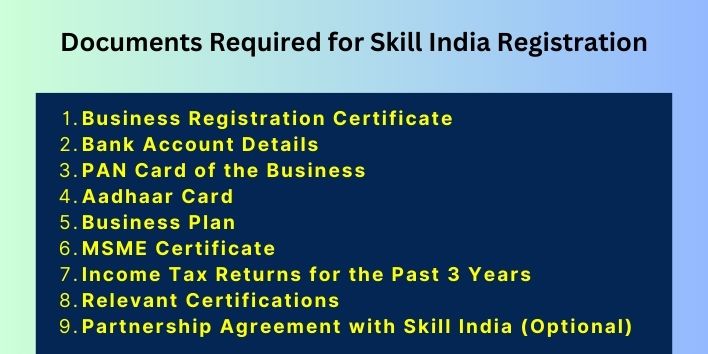Top Government Schemes for Small Business Owners

Starting a small business in India can be challenging, especially when it comes to funding and government regulations. However, there are many government schemes for small business owners that can provide financial assistance, training, and other benefits.
In this blog, we will discuss the top government schemes for small business owners in India, with a focus on company registration online.
1 - Startup India
Startup India is a government initiative aimed at promoting entrepreneurship and innovation in the country.
The scheme offers a range of benefits to startups, including tax exemptions, funding, and mentorship.
To be eligible for Startup India, the startup must be registered as a Private Limited Company, Limited Liability Partnership (LLP), or a Registered Partnership firm.
The startup must also have a turnover of less than Rs. 100 crores and be less than ten years old.
Company registration online is a crucial step in availing of the benefits of Startup India. Startups can register their companies online through the Ministry of Corporate Affairs website.

2 - Pradhan Mantri Mudra Yojana (PMMY)
The Pradhan Mantri Mudra Yojana is a flagship scheme of the Government of India aimed at providing funding to small businesses.
The scheme offers loans up to Rs. 10 lakhs to small business owners, with no collateral required for loans up to Rs. 50,000. PMMY also provides funding to micro-enterprises and individuals engaged in small business activities.
To apply for PMMY, small business owners can visit the website of participating banks and fill out the online application form.
The process is simple and straightforward, and the loan amount is credited directly to the bank account of the borrower.
 Registration.jpg )
3 - Credit Guarantee Fund Trust for Micro and Small Enterprises (CGTMSE)
The Credit Guarantee Fund Trust for Micro and Small Enterprises is a government scheme aimed at providing collateral-free loans to small businesses.
The scheme covers up to 75% of the loan amount, with a maximum coverage of Rs. 50 lakhs per borrower.
To avail of the benefits of CGTMSE, small business owners need to approach any of the participating banks and financial institutions.
The scheme is available to new and existing micro and small enterprises in the manufacturing and service sectors.
 Registration.jpg)
4 - Stand-Up India
Stand-Up India is a government scheme aimed at promoting entrepreneurship among women and Scheduled Castes (SC) and Scheduled Tribes (ST) communities.
Under the scheme, loans up to Rs. 1 crore are offered to entrepreneurs in the manufacturing, services, and trading sectors.
To be eligible for Stand-Up India, the borrower must be a woman or belong to the SC/ST category.
The borrower must also have a viable business plan and be able to contribute 10% of the project cost.

5 - National Small Industries Corporation (NSIC)
The National Small Industries Corporation is a government agency that provides a range of services to small businesses, including marketing, technology support, and financial assistance.
The NSIC also provides training to entrepreneurs and helps them obtain loans and credit facilities.
To avail of the benefits of NSIC, small business owners can register on the NSIC website and apply for various schemes and initiatives.
The NSIC also provides support for international trade and exports, making it a valuable resource for small businesses looking to expand their operations globally.
 Registration.jpg)
6 - Skill India
Skill India is a government initiative aimed at providing vocational training and skill development to individuals across the country.
The scheme offers training in various fields, including healthcare, tourism, retail, and more.
By improving the skills of individuals, Skill India aims to create a pool of trained professionals who can contribute to the growth of small businesses and the economy.
Small business owners can benefit from Skill India by hiring skilled workers trained under the scheme.
The initiative also provides financial assistance to small businesses to train their employees.

7 - Pradhan Mantri Employment Generation Programme (PMEGP)
The Pradhan Mantri Employment Generation Programme is a government scheme aimed at generating employment opportunities through the establishment of new micro-enterprises.
The scheme provides financial assistance in the form of bank loans and subsidies to eligible entrepreneurs.
To be eligible for PMEGP, the entrepreneur must be at least 18 years old and have completed the required educational qualifications.
The project cost must be less than Rs. 25 lakhs in the manufacturing sector and less than Rs. 10 lakhs in the service sector.
Small business owners can apply for PMEGP online through the Khadi and Village Industries Commission website.
 Registration.jpg)
8 - Udyog Aadhaar Registration
Udyog Aadhaar Registration is a government initiative that simplifyies the registration process for micro, small, and medium-sized enterprises (MSMEs).
The scheme offers a single-window registration process, allowing entrepreneurs to register their businesses online without the need for any paperwork.
To be eligible for Udyog Aadhaar Registration, the business must be a sole proprietorship, partnership, or private limited company with an annual turnover of less than Rs. 5 crores.
The registration process is simple and can be completed online through the Ministry of Micro, Small and Medium Enterprises (MSME) website.
 Registration.jpg)
9 - Atal Innovation Mission (AIM)
Atal Innovation Mission is a government initiative which aims at promoting innovation and entrepreneurship. For this purpose, they mainly target students, entrepreneurs, and researchers in the country.
The scheme offers financial assistance, mentorship, and other resources to startups and entrepreneurs working on innovative projects.
To be eligible for AIM, the entrepreneur must have an innovative idea. Above all, it must have the potential to create jobs and contribute to economic growth.
The scheme is open to all individuals and organizations, including startups, incubators, research organizations and more.
 Registration.jpg)
Conclusion
These are some of the top government schemes and initiatives available for small business owners in India.
By availing of these schemes, entrepreneurs can get the necessary financial assistance, training, and other resources required to start and grow their businesses.
Company registration online is a crucial step in availing of many of these schemes. Thus, small business owners must ensure they complete the registration process to avail of the benefits of these schemes.








